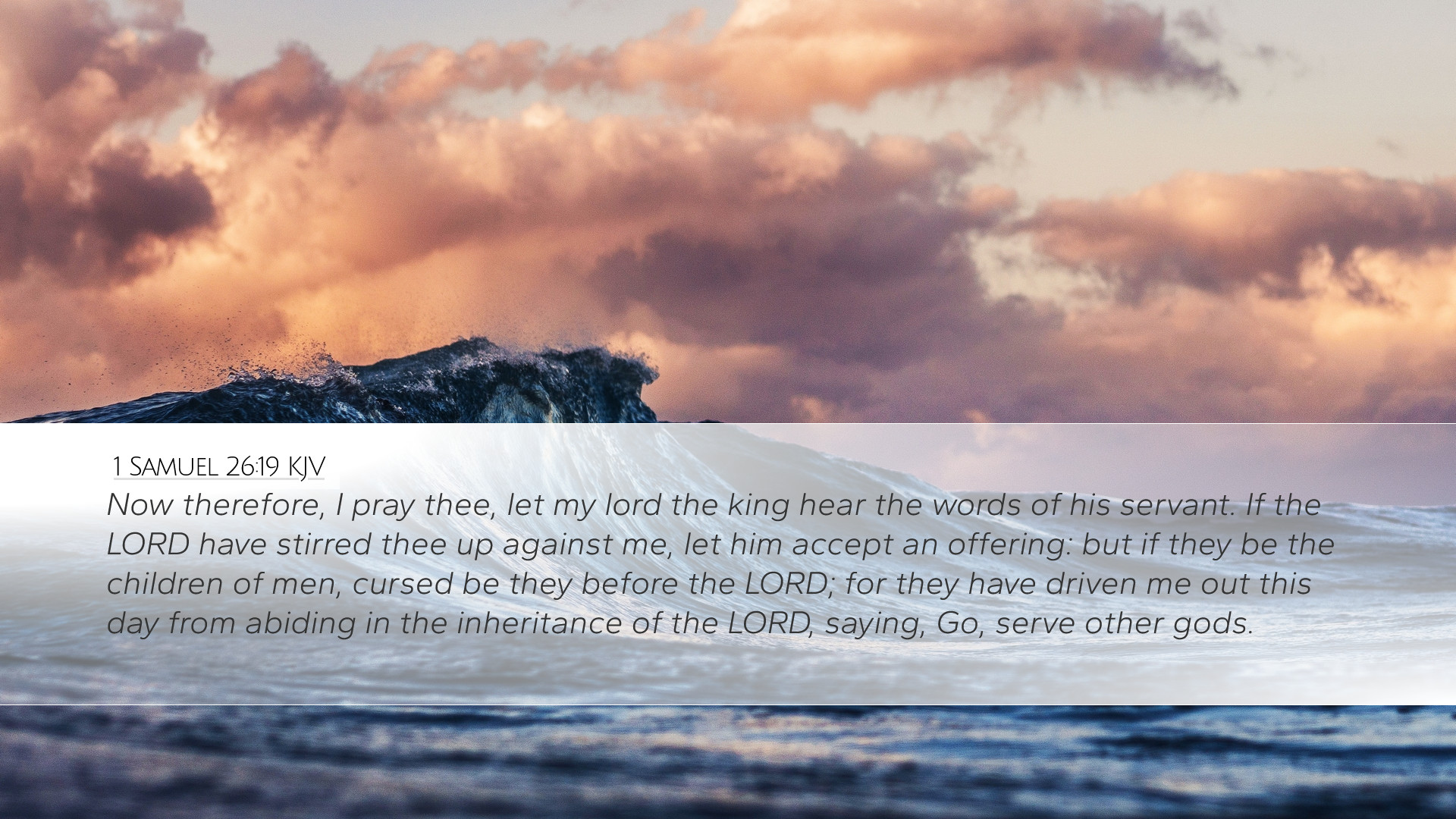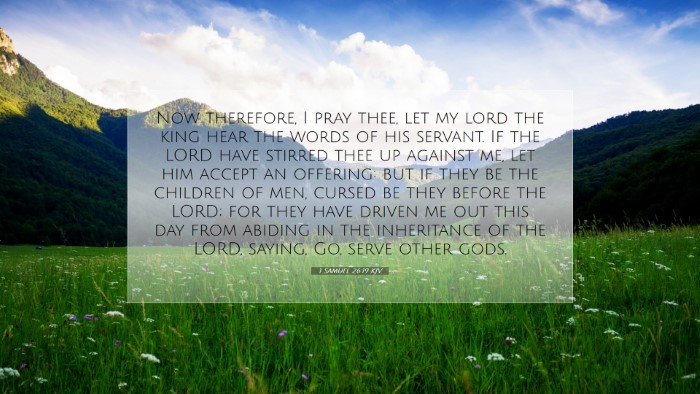Commentary on 1 Samuel 26:19
Verse: "Now therefore, let my lord the king hear the words of his servant. If the Lord has stirred you up against me, let Him accept an offering; but if it is the children of men, cursed be they before the Lord, for they have driven me out this day from sharing in the inheritance of the Lord, saying, ‘Go, serve other gods!’" (1 Samuel 26:19, NKJV)
Contextual Overview
This verse is situated within the narrative of Saul's pursuit of David, a period marked by tension, fear, and divine intervention. David addresses Saul directly, providing an earnest plea and a clear indication of the spiritual and social ramifications of Saul’s actions against him.
Theological Insights
-
Divine Sovereignty:
David acknowledges that if the Lord has prompted Saul to act against him, it is a matter of divine will. This suggests a profound understanding of God's control over circumstances, a theme prevalent throughout the biblical narrative.
-
The Nature of Offerings:
David’s reference to an offering indicates his awareness of the necessity for atonement and reconciliation, not just with God but within the community of Israel. As highlighted by Clarke, sacrifices were a means to seek favor with God amidst turmoil.
-
Identity and Inheritance:
The expression “sharing in the inheritance of the Lord” encapsulates the tragic reality of exile that David faces. Barnes comments on the gravity of being ostracized from the worship community, which symbolizes a deeper estrangement from God Himself.
Key Themes
-
Persecution and Faithfulness:
David’s steadfastness in faith during persecution forms a critical theme that resonates with many believers. His address to Saul reveals a mature understanding of personal suffering as part of a larger divine narrative.
-
Curses and Human Actions:
David’s curse on those who have driven him out emphasizes the moral implications of actions directed against God’s anointed. It serves to remind readers of the seriousness of leading others astray in their spiritual journey, as expounded by Henry.
-
The Call to Serve:
The command “Go, serve other gods!” holds significant theological weight, representing the ultimate betrayal of Israel’s covenant identity. This encapsulates the struggle between fidelity to Yahweh and the allure of other deities, a recurring motif throughout the Old Testament.
Practical Applications
For today's pastor and theologian, 1 Samuel 26:19 serves as a powerful reminder of the complex interplay between divine sovereignty and human decision-making. Here are some applications:
-
Understanding Suffering:
Followers of Christ are called to navigate their sufferings with the understanding that they may be part of a divine plan. This requires faith and a willingness to trust God during difficult times, much like David did.
-
Calling for Reconciliation:
David's plea to Saul exemplifies the need for leaders in faith communities to seek reconciliation and understanding instead of fostering divisions, reflecting Christ’s call to unity.
-
Avoiding Idolatry:
This verse challenges believers to renounce any form of idolatry, be it literal or metaphorical, ensuring their allegiance is solely to God. Pastors should emphasize the importance of maintaining this singular devotion in their congregations.
Conclusion
1 Samuel 26:19 encapsulates David's nuanced understanding of his plight and the larger spiritual ramifications of Saul’s actions. It serves as a profound teaching tool demonstrating the importance of remaining faithful amidst persecution and underscoring the necessity of seeking reconciliation with God and others. For pastors, students, theologians, and scholars, this verse invites deep reflection on the nature of divine human interaction and highlights the imperative to remain steadfast in faith, even when faced with adversity.


